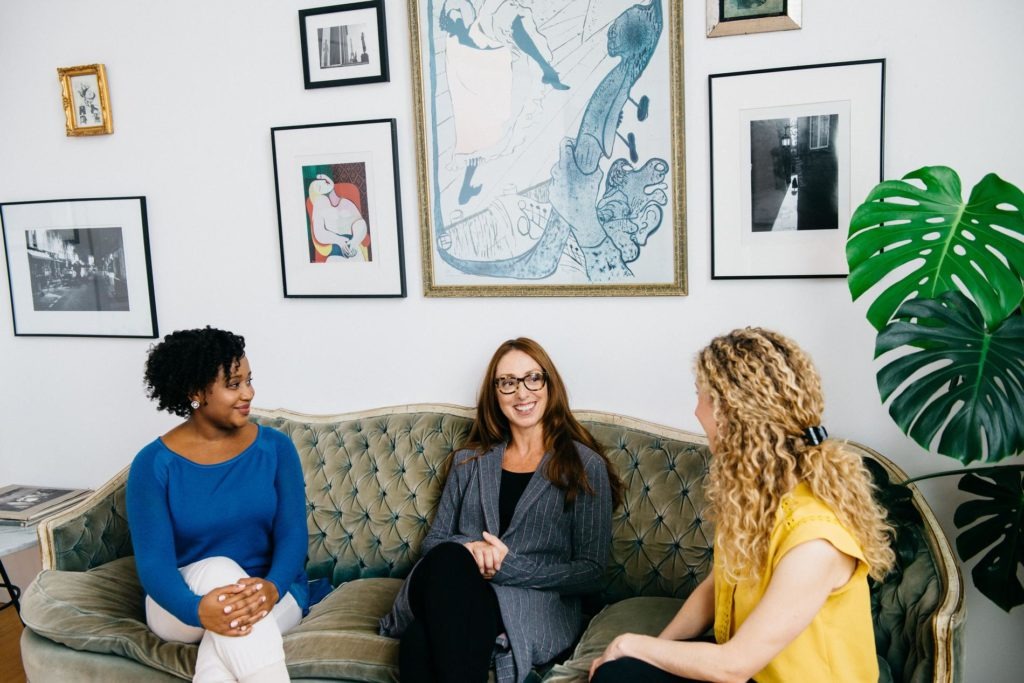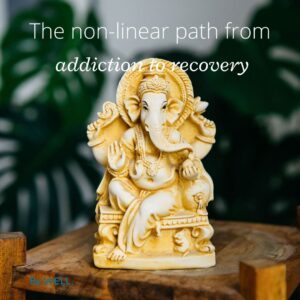World Mental Health Day (October 10th) is a globally recognized day that acknowledges the importance of mental health and the struggles that people around the world face. This special day founded by the World Health Organization was created to raise mental health awareness, break the stigma through conversations around mental health, promote psychoeducation, and increase access to mental health resources around the world. This day is significant this year, more than ever. Due to the COVID-19 pandemic, which has impacted every person around the globe – stress, anxiety, and other mental health struggles have been on the rise. Our Founder, Diana Gasperoni, LCSW – described the experience of the pandemic as a storm and that as individuals, we are on our own boats riding out the storm. Though we are facing our own unique struggles aboard our boat, the high tides are hitting hard against all of our boats. During uncertain times, it is common for our minds to move a thousand miles a minute. On World Mental Health Day this year, I encourage you to take the time to slow down to reflect on how you can best nurture your mental health during these unprecedented times.
Numerous healthcare professionals are speculating that this year is pushing the United States to a ‘Mental Health Crisis’ – due to the continuous anxiety, trauma, isolation, and loss of both loved ones and routines. Federal agencies are currently cautioning healthcare professionals to be ready for a wave of depression, substance use, and post-traumatic stress disorder. The first step in addressing this wave is to change the conversation around mental health not only in the United States but as World Mental Health Day signifies – globally. World Mental Health Day is a time to make a shift in the way we deal with our own mental health and mental health issues as a society to improve psychological wellness initiatives to make them more accessible, decrease stigma so that people can share their struggles without judgment, and facilitate a sense of community and acceptance toward mental and emotional hardships that come with being human. Especially in the midst of a global pandemic, racial injustice, financial uncertainty for many people, and a monumental election – prioritizing mental health must be at the forefront.
All Humans Struggle to Balance their Mental Health
Being human comes with inevitable struggles and admitting to your humanness can be empowering and aid positive psychological health outcomes. People’s mental health improves with the proper care and with the knowledge that they are not alone in their experience. In fact, one in four people around the world will face a diagnosable mental health disorder at some point in their life. Think about the closest 3 people to you; one out of the four of you will likely have a diagnosable mental health illness during their lifetime. On that note, all four of you will have hardships such as transition periods, grief, anxiety, career stress, or relationship difficulties that will impact your mental health.
Mental health struggles are a commonality that many people face over their lifetime, however, due to stigma and fear of judgment, many people hold pain and deal with their struggles alone. World Mental Health Day is observed to know that you are NOT alone in your experience. Your mental health and healing journey matters. Let’s make 2020 the year where we start to pivot the conversations around mental health and improve the narrative for the generations to come.
Wondering ways that you can start to prioritize mental health to honor World Mental Health Day? Here are some great ways to start!
Be Open with Your Mental Health
The first way to start conversations about mental health is to be open about how you are doing. This past year has been incredibly difficult, and a lot of people are feeling off what they would consider their “emotional baseline” to be. Take the time to be open with people you trust in a safe environment about where you are mentally. When we are vulnerable to other people, we create a space where they are also likely to discuss their own mental health. Though no two people experience a situation the same, since we all perceive the world through our own lens, chances are that the person you are opening up to has also had some mental health struggles over the past year. Being open with your own experience has the power to open the doors to transformative and supportive conversations.
Check-In with Your Loved Ones
Let the people you care about know that you are thinking about them! When is the last time that you’ve checked in with the people around you? By “checked-in”, I don’t mean ask them “how is work”, “how the dog is”, or if they shopped the latest sale at your favorite online store. What I mean is that you checked in with how they are doing mentally and emotionally. A common reason that people are hesitant to do mental health check-ins with those around them is that they aren’t sure what to say. Here are some ways you can check-in with those around you without flat out asking “how are you?”
-
Ask them if they would like to go on a walk or do a socially distanced hang out.
-
Send them a fond memory that you have with them and why it was impactful to you.
-
Text them a picture of the two of you and why you appreciate them.
-
Send them flowers, their favorite cookies, or a treat.
-
Let them know that you care about them and are there for them.
-
Normalize your own struggles while providing them a safe space to open up when they feel ready to do so.
Educate Yourself on Mental Health Topics
Mental Health 101 is unfortunately a subject that was not taught in school. One of the biggest reasons that people say they don’t talk about mental health is because they don’t have the language to do so. Society has largely conditioned people to not talk about their emotional experiences or struggles. When people start to have the language about mental health and feelings, they start to integrate it into their lives wholeheartedly. Think about it, if you do not feel confident in a certain subject, then chances are you are going to avoid conversations about it because you don’t feel confident enough. The same thing goes for mental health. Start to educate yourself on topics of mental health, and if you are a parent start to encourage these conversations in your household. Here are some resources where you can learn more about mental health:
-
NAMI (National Alliance on Mental Illness)
-
Psychology Today Articles
-
NYC Mental Health First Aid FREE Workshop
-
Books – check out
-
(Don’t) Call Me Crazy by Kelly Jensen
-
The Happiness Trap by Russ Harris
-
The Power of Different by Gail Saltz
-
First, We Make the Beast Beautiful by Sarah Wilson
-
My Strong Mind (children’s book) by Niels Van Hove
-
-
BeREAL, our mental health podcast, discusses various mental and emotional wellness topics. Hosted by BeWELL Therapists Diana Gasperoni, LCSW, and Ednesha Saulsbury, LCSW. New episodes drop every Tuesday at 10 am!
Therapy Can Help
Trained mental health professionals are available to accompany you in your mental health journey. Whether it is learning the emotional language, processing your anxiety or stressors, discussing relational dynamics in your life, or coping with immense stress – a therapist can work with you to navigate what YOU need to improve your well-being. Sessions consist of a tailored experience where you can reflect on your own mental health and learn psychological tools to improve your mental wellness and relationships with others. The world is a heavy place right now, and a lot of people have needed to seek therapy as a new coping strategy. As our circumstances change, our coping strategies need to change as well. Find a therapist that meets your needs by asking for a consultation before starting sessions.
Therapy can help you:
-
Manage challenges in a better way and feel stronger in the process
-
Reflect on unhelpful behaviors and learn how to make changes
-
Observe how the world around you is impacting how you are thinking and feeling
-
Improve your relationships with your loved ones (especially if you are quarantining with them)
-
Cope with overwhelming symptoms and situations
-
Handle strong emotions such as grief, panic, loss, and endings.
-
Enhance your self-esteem so you can feel better day to day.
Ready to Begin Therapy in Manhattan?
If you haven’t tried therapy and are curious about what it can do for your mental health – our psychotherapy practice in Manhattan offers free consultations with one of our licensed therapists. We have fifteen licensed clinicians, all ranging from various specialties to ensure that every person who inquires about BeWELL can have their needs met. Our therapists are trained in chronic stress, anxiety, depression, racial identity formation, relationship issues, and grief/loss. Contact our client care coordinator at contact@bewellpsychotherapy.




